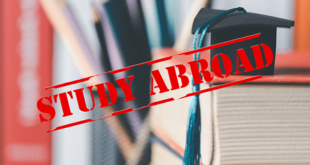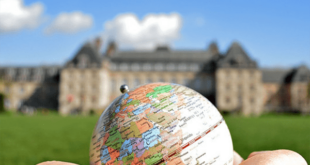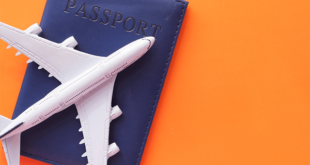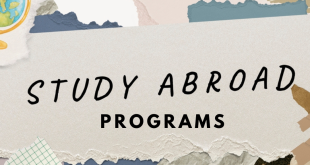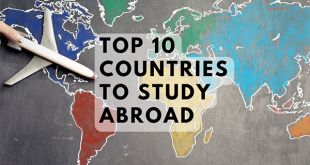When preparing to study abroad, one of the most important aspects of preparation is packing. Knowing what to pack and what to leave behind is important for your comfort and convenience during your time abroad. That’s the purpose of this guide. Read on to discover our packing list and essential tips to ensure a seamless transition to your new life and study abroad adventure!
Table of Contents
Planning Ahead: Preparing for Your Journey
Before you start packing, take some time to research your destination thoroughly. Consider factors such as the climate, local customs, and cultural norms. Check visa requirements and ensure that all necessary paperwork is in order well in advance of your departure date.
Understanding the climate of your destination is essential for packing appropriate clothing. Whether you’re headed to a tropical paradise or a chilly urban center, make sure to pack clothing that will keep you comfortable in various weather conditions. Layering is key, as it allows you to adjust to changing temperatures throughout the day.
Essentials to Pack: What Should I Pack for Study Abroad?
When it comes to essential items for your studies and daily life, the first items on your packing list are obviously electronics. Laptops, tablets, and smartphones are typically must-haves for staying connected and completing coursework, along with chargers and adapters.
In addition to clothing and electronics come all necessary documents and paperwork. This includes your passport, visa, travel insurance information, and any academic documents required for your program.
Next, personal care items such as toiletries, medications, and first-aid supplies for maintaining your health and well-being while abroad. We’ll come back to all this in our packing hacks, but the idea for packing wise is to have travel-sized versions of your favorite products to save space in your luggage.
Passport, Visa (With Photocopies) and Other Important Documents
When preparing for your study abroad adventure, it’s crucial to have a study abroad packing list to ensure you don’t forget anything important. First and foremost, your passport and visa are top priorities. Don’t forget to bring extra photocopies of these documents and store them separately.
Other essential documents include:
- Printed copy of student visa
- Copy of your birth certificate
- University enrollment confirmation
- Housing contract
- Proof of medical and travel insurance
- Emergency contacts list
- Health records and vaccination certificates
- Flight tickets and hotel details
- Bank statements if required
Moreover, remember to make photocopies of these documents and upload them to your cloud storage. Keep them in separate places in your luggage for safety. Additionally, place at least one identification document on top of your checked luggage in case the tag gets lost. Prepare well, and enjoy your study abroad experience hassle-free!
Electronics and Gadgets
In today’s digital age, electronics play a crucial role in staying connected and productive while abroad. From laptops for coursework to smartphones for navigation, here are some essential electronics to consider packing for your study abroad adventure.
Here are the items to include in your study abroad packing list:
- Laptop or tablet: Bring a portable device for coursework, research, and staying connected with friends and family.
- Smartphone: Keep in touch with loved ones, navigate unfamiliar cities, and access essential apps on the go.
- Universal adapter: Ensure your electronic devices can be charged in different countries by packing a universal adapter.
- Power bank: Stay powered up on-the-go with a portable charger to keep your devices charged during long days of exploring.
- Noise-canceling headphones: Block out distractions and immerse yourself in your studies or entertainment with noise-canceling headphones.
Prescription Medications and a First Aid Kit
Next items to prepare in your study abroad packing list are related to health emergencies. Start with a basic first aid kit, stored in a durable nylon bag with ample space. Customize your kit to fit your destination, activities, and health needs.
Essential items include bandages, wound dressings, antibacterial wipes, cotton swabs, medical tape, and tweezers. Don’t forget over-the-counter medications like pain relievers, antibiotics, antihistamines, and anti-diarrheal tablets.
For prescription medications, bring enough to cover at least the first three months of your stay. Moreover, carry a copy of your prescription for emergencies. Include copies of medical insurance, emergency contacts, and other important information in your kit.
Packing Essentials for Clothing: How Many Clothes To Pack For Study Abroad
When it comes to clothing, versatility is key. Pack items that can be mixed and matched to create various outfits suitable for different occasions and climates. Consider the weather of your destination and pack accordingly, including layers for unpredictable conditions. Opt for lightweight, wrinkle-resistant fabrics that are easy to pack and care for during your travels.
Here’s what to include in your packing list:
- Versatile clothing: Pack clothing items that can be worn in multiple ways and for different occasions.
- Weather-appropriate attire: Consider the climate of your destination and pack clothing suitable for the weather conditions.
- Layering pieces: Bring layers that can be added or removed to accommodate changing temperatures.
- Wrinkle-resistant fabrics: Choose clothing made from fabrics that resist wrinkles to keep your outfits looking fresh.
- Comfortable shoes: Invest in comfortable footwear suitable for walking long distances and exploring new cities.
Other Essential Items To Bring
Preparing to study abroad involves more than just packing clothes. Consider essential items like local currency, as relying solely on cards may not always work. Keep some foreign cash handy for local markets or places that don’t accept cards.
Moreover, travel accessories can enhance your experience significantly. A travel wallet keeps important documents safe, while a reusable water bottle helps you stay hydrated sustainably. Avoid excess baggage fees with a portable luggage scale. Don’t forget a compact umbrella for unexpected weather changes.
At last, include basic school supplies, as your courses may require specific materials. Check your syllabus and consult with your study abroad coordinator for a comprehensive packing list.
What Not To Pack For Study Abroad
When packing for study abroad, it’s essential to be selective and avoid bringing unnecessary items. Leave behind bulky or heavy items that you can easily purchase at your destination, such as toiletries, towels, and bedding. Consider the availability of these items in your new location and pack accordingly.
Here’s the list of the items to leave out of your study abroad packing list:
- Lots of food or snacks: Bringing too much food takes up space. Try local snacks for new tastes.
- Heavy liquids: Big bottles of liquids take up space. Get travel-size or buy at your new place.
- Books: Books are heavy. Try an e-reader or borrow from the university’s library.
- Tons of electronics: Only take what you really need to avoid theft.
- Bedding: It’s bulky. Buy it when you get there.
- Valuables & luxury items: Functional items are better to avoid heartbreak.
- Anything culturally inappropriate: Be respectful of other cultures to represent your home country well.
Tips and Hacks in Making Your Study Abroad Packing List
Efficiently managing your luggage is essential for hassle-free travel during your study abroad adventure. From packing strategies to luggage organization tips, here’s how to make the most of your suitcase space:
- Gear up smartly for varying climates: Pack light, breathable fabrics for hot climates to stay cool and comfortable. For winter or colder climates, layer with lightweight, insulating materials like merino wool.
- Pack lightweight: Bring versatile clothing items suitable for various activities and weather conditions to avoid overpacking. Moreover, opt for solid or neutral shades and limited patterns to mix and match outfits, reducing the need for excess clothing. When it comes to shoes, prioritize essential pairs like flip-flops for showers, comfortable walking shoes, and a pair for outings.
- Demonstrate cultural respect: Research and adhere to local dress customs to avoid unintentional disrespect. Dress modestly and learn about cultural norms regarding clothing.
- Furthermore, opt for rolling clothes over folding to save space and reduce wrinkles. Use packing cubes for organization and easy access. Distribute weight evenly in your suitcase for better maneuverability.
- Maximize your carry-on allowance by packing essential items such as electronics, medications, and valuables in your hand luggage. This ensures that you have everything you need in case your checked baggage is delayed or lost.
Arrival: Settling In and Unpacking
Upon arrival at your destination, take some time to adjust to your new environment and unpack your belongings. Organize your living space to make it feel like home and familiarize yourself with local amenities and services. If possible, connect with fellow students or locals for tips and advice on navigating your new surroundings.
As you settle into your study abroad experience, you may discover additional items that you need or want to purchase locally. Consider buying essentials such as groceries, toiletries, and school supplies from nearby stores or markets. Embrace the local culture and customs, and don’t be afraid to try new things during your time abroad.
Conclusion
Preparing to study abroad requires careful planning. That means thinking about what to bring and what to leave behind. By following these packing tips and guidelines, you’ll be on your way to a smooth and enjoyable transition – with everything you need to make the most of your time abroad. Just remember to pack efficiently, prioritize essential items, and leave some room for souvenirs to bring home from your study abroad trip.
Read also here our tips on how to overcome the most common challenges when studying abroad.
And last, check our guide on how to adapt to a foreign educational system.




 Aljawaz Your guide to study abroad
Aljawaz Your guide to study abroad



